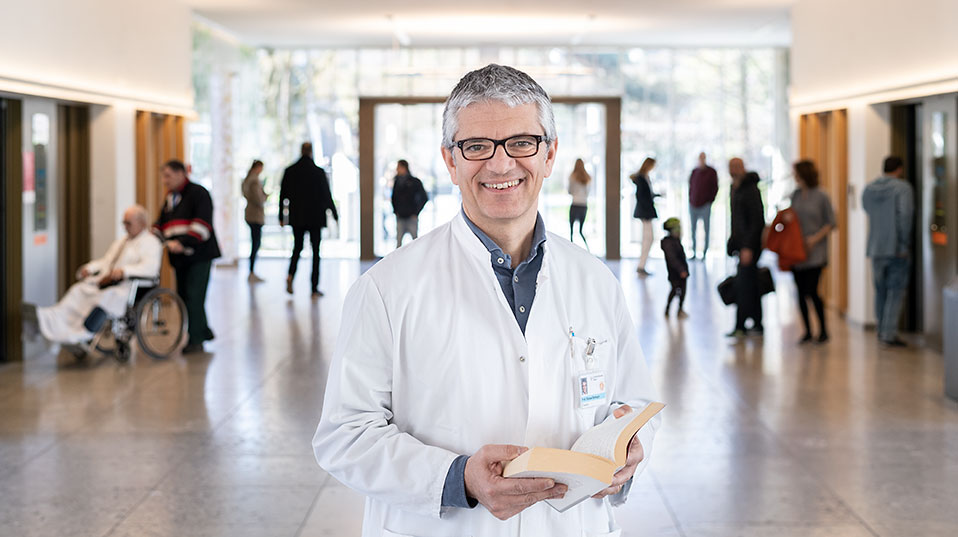Against totalitarianism.
Text: Manuel Battegay
“Life and Fate”, by Vasily Grossman: Against totalitarianism.
During my summer vacation, I was immersed in Vasily Grossman’s (1905–1964) epic novel Life and Fate. After hours of feverish reading, I was left with a strange feeling. For a moment I thought I was reading this magnificent novel in the original language. But I don’t know any Russian! Rarely – perhaps never before – have I been so captivated by a book. And it has been part of my life ever since.
The author paints a breathtaking and deeply humane picture of the Soviet Union in the years 1942 and 1943. The focal point of the novel is the Jewish family of Viktor Shtrum, a nuclear physicist. Central themes include the battle of Stalingrad, civilian life, and the Nazi death camps. The narrative perspective is always shifting – brilliantly, brutally, and realistically. For Grossman spent three years as a correspondent with the Red Army at the front. When he describes the conversations between Russian generals, the house-to-house fighting around Stalingrad or the atmosphere in the Physics Institute – where intrigues against Shtrum cease the moment Stalin starts inquiring about him – it triggers an almost physical response in the reader. Take his account of events in the famous House 6/1 in Stalingrad, which lay behind enemy lines – a deadly posting for the fighters holed up there. Its charismatic commanding officer reveals his true self when he shows kindness toward a young women soldier who is disregarding orders.
Grossman gives a harrowing description, from an insider’s perspective, of the Holocaust and the agonizing deaths of its Jewish victims in the Nazi gas chambers. At the same time, he provides a voice of hope for those murdered prior to their deaths.
To begin with, Grossman was a writer who followed the Soviet party line. In 1937, he signed a cowardly appeal for opponents of the regime to be sentenced to death. Scarred by his experiences during the war, afterward he himself became an enemy of totalitarianism. “For human beings, living means being free,” he wrote. Life and Fate was confiscated in 1961 and did not appear until 16 years after Grossman’s death. Since then, it has come to be regarded as a masterpiece of Russian literature. The work is a powerful metaphor for hope and comfort in the worst of times – and thus for the inexplicable, which, for all our knowledge and experience, we can never fully comprehend.
Manuel Battegay has been Professor of Infectiology at the University of Basel and Head of the Department of Infectious Diseases & Hospital Epidemiology at Basel University Hospital since 2002. In their work, he and his team focus mainly on patients with severe and acute infections, as well as on hospital epidemiology. For over 30 years, he has been carrying out research on viruses, especially HIV/AIDS.
More articles in the current issue of UNI NOVA.

